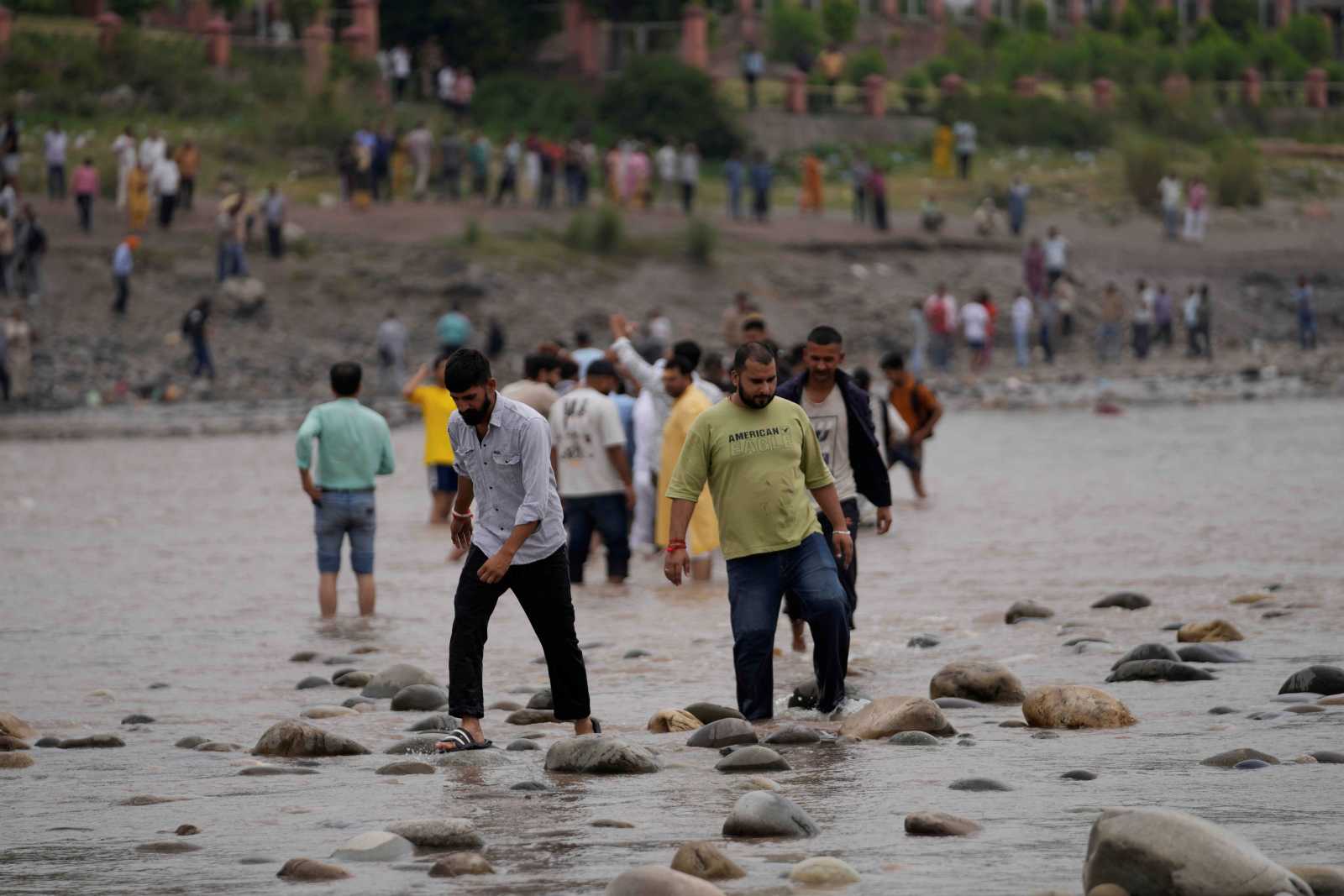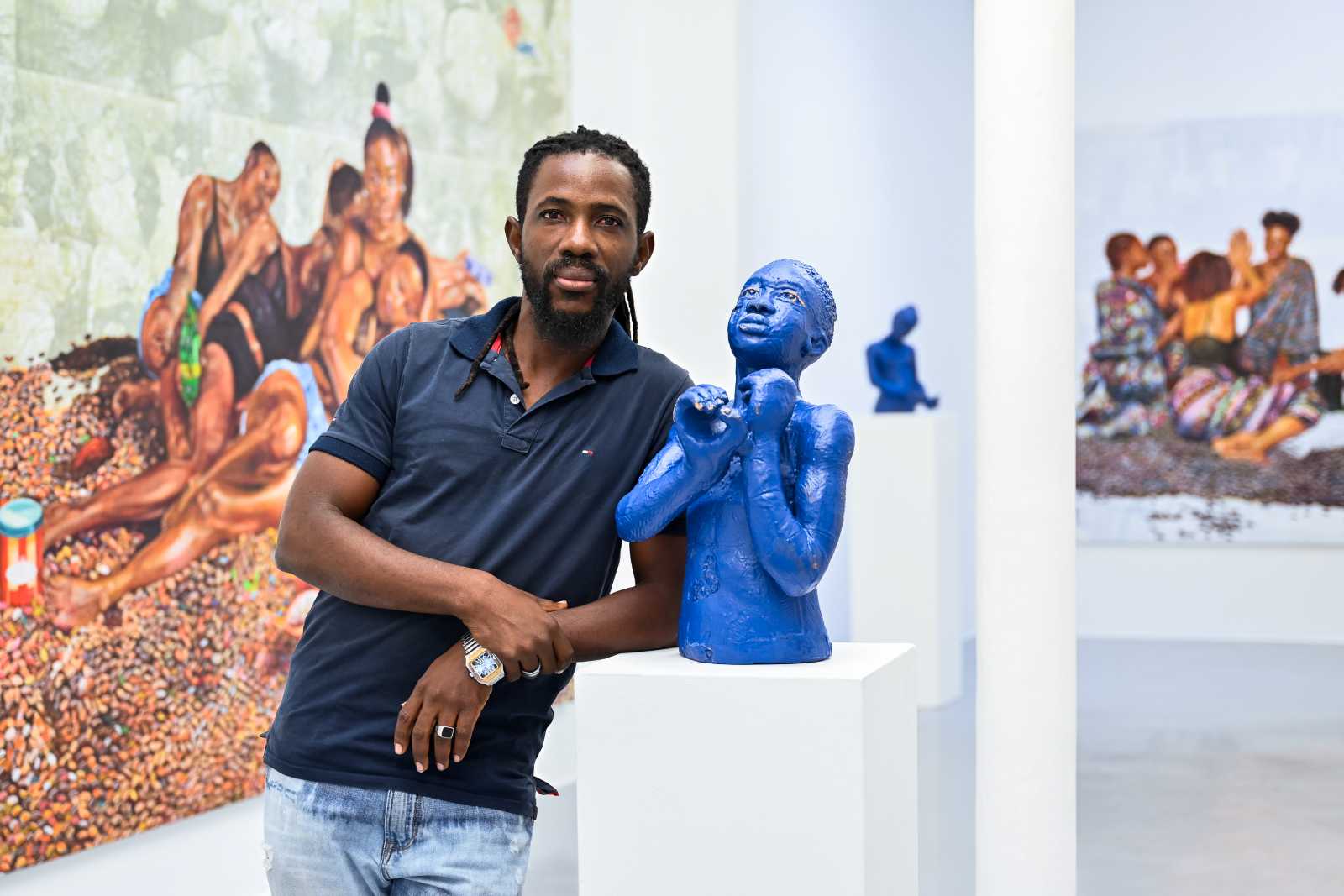In brief
News of the week

News of the week
CSOs not satisfied with World Bank standards
The World Bank has published a second draft for the social and environmental standards it intends to adhere to in the future. Civil-society organisations (CSOs) are not satisfied. In a joint statement, an alliance of 19 internationally active non-governmental organisations (NGOs) states that the new version is a "dangerous rollback in environmental and social protections". The group includes Oxfam, Human Rights Watch and Urgewald, a German NGO with a focus on forest issues.
The World Bank plans to adopt the new standards formally by the end of this year. Further consultations will be held. A first draft had run into strong criticism last summer. At the time, Jim Yong Kim, the World Bank president, promised that existing standards would not be diluted. In the eyes of the NGO alliance, the new draft contradicts that pledge.
Sources: The Hindu, Economic Times, FR
Links:
Statement by NGO alliance https://www.urgewald.org/sites/default/files/august_4_2015_for_immediate_release_-_world_bank_safeguards.pdf
Draft World Bank Standards http://www.bankinformationcenter.org/wp-content/uploads/2015/07/Second-Draft-World-Bank-Environmental-and-Social-Framework.pdf
Refugees in distress at sea off Libyan coast
Amnesty International demands that “European governments must do more to provide safe and legal ways for people in need of protection to enter the European Union (EU), rather than risking their lives at sea in their thousands”. The international organisation issued its statement while rescue operations were still going on after a boat carrying up to 600 people - mostly Syrians - capsized on Wednesday near the Libyan coast. About 370 persons were saved, 25 dead bodies were found. At least 200 migrants are feared drowned – many of them locked in the cargo hold below deck. On Thursday another boat overloaded with refugees sank just a few kilometres away where the other vessel capsized. All 600 passengers could be rescued by the Italian Coast Guard and other ships.
The capacities for rescue operations have been stepped up by European governments after hundreds of refugees drowned because of ship wrecks earlier this year. Non-governmental organisations are also contributing to saving people.
Sources: Spiegel.de, FR, Amnesty
No agreement on TPP yet
A ministerial conference in Hawaii failed to reach the expected agreement on the Trans-Pacific Partnership, a trade deal that is being negotiated by 12 Asian, American and Pacific countries. According to an Australian diplomat considerable progress was made, but the USA, Canada, Mexico and Japan disagreed on agriculture issues.
At least one more conference will be needed to finalise the deal, as participants told journalists. “We are more confident than ever that TPP is within reach,” said Michael Froman, the US trade representative. TPP critics, however, said that failure to reach agreement now showed that the negotiations were in trouble. Environmental, civil-liberty and labour-rights organisation oppose TPP, arguing that the partnership would only benefit large multinational organisations.
A date for the next meeting has not been announced so far. Observers point out that the Canadian government may be inclined to postpone decisions that are not popular with Canadian farmers until after national elections in the fall. On the other hand, the US administration is keen on concluding TPP before the campaigns for the presidential elections next year take up speed.
Sources: FT, Guardian
Manipulated report on human trafficking
Senior diplomats have overruled decisions made by human-rights experts in the context of the report on Trafficking in Persons which the US State Department published last month. According to Reuters, the raking of 14 strategically relevant countries was upgraded to fit foreign-policy considerations.
Relying on information gained in interviews, Reuters reports that the ratings for 17 countries were disputed within the State Department: “The analysts, who are specialists in assessing efforts to combat modern slavery – such as the illegal trade in humans for forced labour or prostitution – won only three of those disputes, the worst ratio in the 15-year history of the unit.”
Malaysia, China, India, Uzbekistan, Cuba and Mexico are among the countries that benefitted from diplomats’ intervention. Human-rights groups, some former State Department officials and politicians have stated that the manipulation may undermine the credibility of the annual Trafficking in Persons report.
The report uses three categories. Tier 1 is for nations that meet minimum standards, tier 2 for those that make efforts to meet those standards and tier 3 for countries that do not even make efforts to comply. Tier 2 includes a “watch list” for countries that deserve special scrutiny. If a country stays on that list for four years in a row it is downgraded to the lowest rank. Tier 3 ratings can trigger sanctions concerning support from the USA, the World Bank or the IMF. Tier 3 countries, moreover, are excluded from free-trade deals with the USA. The Obama administration, however, wants Malaysia to be part of the Trans Pacific Partnership it hopes to conclude with 11 other nations soon.
Sources: Reuters, vox.com
Murder of Mexican journalist
Ruben Espinosa, a photo journalist, and four women were found dead in Mexico City. They were tied up and had been tortured. Because he had received threats and no longer felt safe, Espinosa had recently left Veracruz State where he had published pictures documenting violence of state agencies and protests concerning the regional government.
According to the Committee to Protect Journalists (CPJ), an independent international organisation, Veracruz is one of the most dangerous places for media workers in Mexico. Since 2011, four journalists were killed there, 10 died in mysterious circumstances and four disappeared, the CPJ points out. Carlos Lauría of the CPJ says: "It is time for federal and local authorities to take action to combat the serious press-freedom crisis facing Mexico. This means fully investigating Espinosa's murder and all possible motives, particularly that he might have been killed in reprisal for his work."
Mexico City was long considered a safe haven for journalists who feel threatened in other parts of Mexico. On Sunday, several thousand protesters rallied in the capital to commemorate Espinosa.
Sources: taz, CPJ, NYT
Link: Committee to Protect Journalists https://cpj.org/2015/08/mexican-photojournalist-who-fled-violent-veracruz-.php
Assassinations in Burundi
Two allies of Burundi’s President Pierre Nkurunziza have been killed. General Adolphe Nshimirimana was a former head of the secret service and believed to be a powerful hardliner. He is said to have played a central role in repressing protests against the controversial re-election campaign of Nkurunziza, who was confirmed in office as the opposition boycotted the vote. A local party leader was killed too. On the other hand, a prominent civil-rights activist, Pierre Claver Mbonimpa, was shot and seriously injured.
The country has seen violent unrest for months. Observers doubt it will find peace soon given that the recent elections lacked legitimacy.
Sources: Reuters, Daily Beast
Glaciers losing ice fast
Glaciers are shrinking faster than previously experienced. According to the World Glacier Monitoring Service, which is hosted by the University of Zürich, glaciers will keep getting smaller even if the global climate is stabilised. In the first 10 years of this century, the trend was up to three times faster than in the past century, the scientists state.
Sources: Neue Zürcher Zeitung, dlf
These items were compiled by Hans Dembowski and Sabine Balk on the basis of international media coverage.











